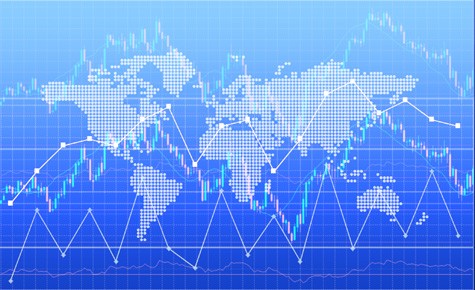99 pct of SMSFs missing global opportunities

It’s no wonder then that over 85 per cent of overseas shares bought by Australians are US purchases. A figure this high would indicate a keen appetite for overseas investing. But when it comes to SMSFs, in my opinion, the numbers are worryingly low.
Just 0.6 per cent of self-managed super assets are invested in overseas shares, compared to 26.7 percent of industry super funds. As a global trader, these statistics are concerning. Limiting investment to Australian shores alone means SMSFs are simply limiting their opportunities for returns and leaving themselves vulnerable and exposed for the future.
What's even more staggering is trustees continue to allocate too little overseas when the costs of investing globally are significantly lower than trading locally. At the same time, the potential opportunities overseas dwarf those at home. When you have control of your investments, wouldn’t you want to lower your costs and give yourself the best chance of success? It’s just better business.
Australian SMSFs vulnerable
Such low uptake in overseas investment opportunities wouldn’t be such a concern if SMSFs were thriving. Yet ATO SMSF statistics for 2017 showed almost half of them did not make any money. In fact, the 10 per cent of SMSFs with balances of less than $100,000 have lost money year-on-year since 2008.
SMSFs are failing to make gains and there’s little investment in overseas shares – it’s hard to see why the link between the two isn’t being made. Australians need to be investing where the rest of the world is. Failure to do so and keeping their investments on home turf will trap them in a cycle of loss.
Diversity redefined: looking beyond borders
Diversity is a much-used buzzword drilled into all client conversations (as well as being something you discuss with friends and family for that matter). Diversity is the key to minimise year-on-year investment loss. But as access to the global stock market rapidly becomes easier, the meaning of diversity is being redefined.
Diversity means investing beyond borders; exploring the emerging markets and beyond ‘traditional’ industries on the Australian Securities Exchange (ASX), such as healthcare, banking and mining. In a world where innovation is running the news agenda and the start-up industry has been given a new lease of life through rapid advancements in technology, diversity is taking on a whole new meaning.
Access to diverse opportunities
Let’s look at the most glaringly obvious reasons to invest in the US: emerging industries such as technology, robotics and semiconductors. Right now it is almost impossible to trade any of these industries on the ASX; there are just no major company listing in these areas.
Similarly, being able to access exchange-traded funds (ETF) that cover asset classes unavailable in Australia means investors can generate returns in any market conditions. Accessing ETFs over bonds, soft commodities, oil and volatility, and the ability to get simple inverse exposure to the market in the US mean those SMSFs that make the jump early to the US markets are light years ahead of their peers. The rest stay entrenched in our local market.
Previously, barriers to overseas markets, including high trading fees, significant paperwork and complex platforms, meant local investors couldn’t access these opportunities simply and affordably.
This loophole is being closed with fintech start-ups disrupting the market and opening up access to overseas stock markets. We’re seeing this at Stake.com.au with over $30 million transacted on-site. This is just the start.
Reduce vulnerability
The 99.04 per cent of Australians with SMSFs who are not investing in the world beyond Australia are limiting their potential for returns and leaving themselves vulnerable to an uncertain future. To be truly diverse, SMSFs should follow the growing trend of Australian investors using new tools to take their investment out of their backyard and onto the global market.
By Matthew Leibowitz (co-founder of Stake)
11 Apr 2018
www.smsmagazine.com.au

